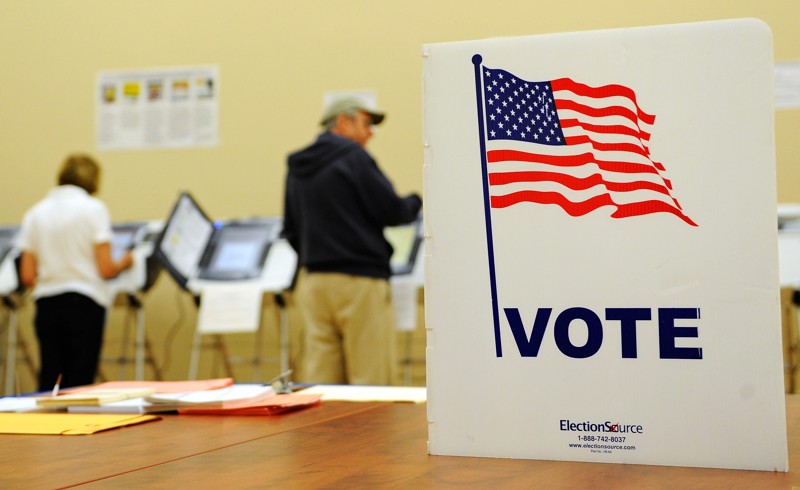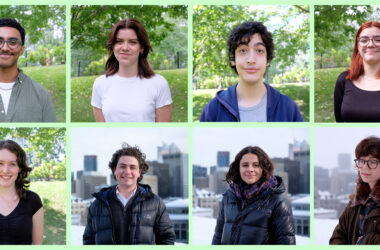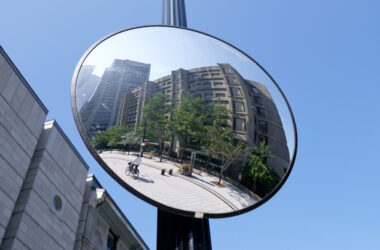Due to McGill’s large population of American students, discussions about the looming US presidential election have become a familiar part of life for many students this year. An unprecedented level of polarization between the candidates makes such conversations particularly lively. However, for many American citizens studying at McGill, this election is less about talk, and more about action.
Despite the fact that voter turnout among 18-to 35 year-olds in the US is typically dismal—with only 46 per cent voting in the last presedential election, compared to 72 per cent of those aged 71 and up—signs point to this election being different. The extremes to which the campaigns have gone has raised the stakes for members of all political parties, thus increasing voting rates and general interest among students.
“I do not know a single American citizen at McGill who is not registered to vote,” Phoebe Warren, U3 Political Science and History, and founder of McGill Students for Hillary Clinton, said. “Almost everyone is interested in the election, even if they aren’t American.”
There are many potential reasons why the campus environment is so conducive to political interest. One is that the environment is necessarily one of education and intellect, keeping news and politics at the forefront. Additionally, the social atmosphere ensures that news and opinions spread quickly through the student body. However, what might be making one of the biggest differences on the campus in engaging students in political processes are political clubs.
“[Political clubs] are vital [to engaging students in the election],” Warren said. “Participating in political groups allows us to develop our political identities and find others with similar beliefs and values.”
In fact, campus political clubs seem to be a key factor in improving low voter turnout. These political groups facilitate student voter rates directly by holding voter registration and absentee ballot request events. Democrats Abroad at McGill, for example, hosted a voter registration table in the Y-Intersection, which was widely attended by students this year.
“[Our voter registration] had a pretty good turnout this year,” Amanda Demers, U2 Geography and Political Science and member of Democrats Abroad at McGill, said. “There was a constant stream of people really expressing a strong interest to vote, because it’s really coming from a strong sense of concern than [in other elections….] It seems now people are more interested in having their voice be heard.”
Yet, improving voter turnout is not strictly an American effort. Canadians can also do their part by making sure their American classmates are aware these services exist on campus.
“A lot of Canadians have expressed to me that they’re also […] spreading the word because this election will impact them in some ways, too,” Demers said. “And since they can’t vote personally, I guess the closest thing they can do is help [Americans] vote.”
Voting abroad can intimidate students and deter many from registering to vote. Through voter registration booths, political clubs on campus can alleviate some of the barriers to voting abroad, such as the high cost and time commitment.
“Voter registration is somewhat accessible,” Warren said. “However, we have to pay for postage with this and the absentee ballot itself. For people on a student budget, this can be a hassle. Democrats Abroad does a great job of taking away all other barriers that come with voter registration.”
To alleviate such stress, student groups on campus are doing their best to simplify the process for American students at McGill, working with students every step of the way.
“[Casting an absentee ballot] is actually easier than most people think,” Demers said. “You can do most of it online, but the hardest part is that you eventually have to print out everything you fill out online because [the US government] usually wants everything signed. Printing it out and mailing it in is the part that deters a lot of people, but that’s what [Democrats Abroad] is here for.”
While candidates are resorting to desperate measures to get young people to show up to the polls this November, like inviting leagues of pop stars to sing at rallies, or awkwardly using slang in their speeches, campus political clubs are putting power in the eager and educated hands of American students at McGill. These students’ commitment remains unhindered no matter where in the world they are.
Find out more about how to vote in the US election from abroad here.









